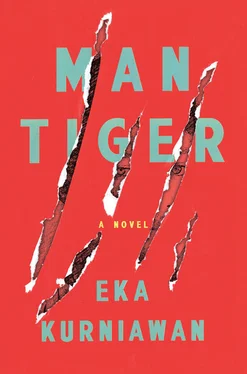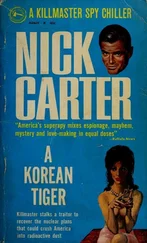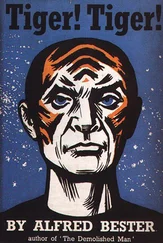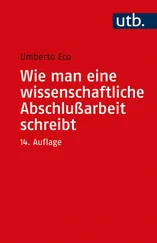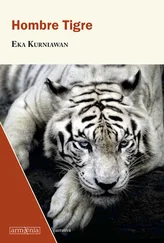Boar hunting had become their pastime many years ago, back when Sadrah was still the town’s military commander. Anwar Sadat himself had always been highly enthusiastic every time the harvest season ended, when people were no longer bound to the soil, which was left fallow temporarily. Although he had never raised a spear or run up and down the hills, he always provided boxed meals of rice and fried egg and a truck to take the hunters to the jungle’s edge. Three times a year they enjoyed this sport, going on the season’s non-stormy Sundays. Between hunts they would tame ajaks and train them to course their prey.
Among the troop of hunters that until recently had been under Sadrah’s leadership, Margio was the champ. On his back he wore a scar from a slashing boar’s tusk, and all his friends knew how many hogs had surrendered to the swings of his spear, before being dragged to the trap and shut up alive. They had no interest in a dead hog. Even when confronted by a raging boar, they would balk from killing it. They would wound it, just a little, before forcing it into to the trap. They didn’t want the hogs to die, because they would later throw them into battle with the ajaks, in a public spectacle at the end of the hunting season. During these strategic hunts for these stupid beasts, Margio became known as the herder, with his powerful strides and ruthless spear. Not many had the courage to take up that role, running alongside the boar, matching its pace. It was a feat that earned Margio the admiration of his companions.
A few weeks earlier, Sadrah had been dismayed to learn that Margio had disappeared. Gone and nobody knew where. Some of his friends went looking for him on the shore, where he had often disappeared to pull up nets or hunt for stingrays with the fishermen, but no one there had seen him. For the two previous weeks, a circus had encamped by the soccer field, and everyone finally concluded that Margio most likely had joined the performers, moving from town to town. The idea sent Sadrah, who was ready with the vicious ajaks to welcome the boar-hunting season, into panic. As herder, Margio was irreplaceable. The first hunt the previous week had ended in disappointment. They had trapped only two boars and mostly because of the ajaks’ agility. On that same day they heard that Margio’s father had died.
His name was Komar bin Syueb, and his death brought his missing son home. No one was happier on his return than Sadrah, who had been heartbroken by failure of the hunt. But Sadrah dared not invite him to return to the jungle the following Sunday, out of respect for the mourning period. When the hunters jumped off their truck, with two squealing pigs in a cage, and dozens of hounds bound to each other by leather leashes, Margio showed up. He waved at them, jaunty despite the fact of his father waited to be buried.
Not long after the funeral, Margio came to Sadrah’s house. He patted the hounds in the backyard with affection. He squatted there, cuddling the beasts one by one, scrubbing wax from their ears, and letting the animals bite the hem of his pants and his flip-flops. His face showed not a trace of grief. Instead he looked incredibly happy, as if he had unexpectedly won a big bet.
Major Sadrah had long known that the boy didn’t get along with his father, and even suspected he wanted the old man dead. He had known the family since they first came to the village, and Margio was just a snotty child with a bag of marbles with which he enticed the other children into playing with him. Sadrah also got to know the father, and had seen the brutal man beat the child for the smallest of offenses. Now his father was gone, the ingenuous kid couldn’t hide his joy, Sadrah thought, and when Margio saw him approaching, without hesitation he asked whether there would be a hunt the next week. He wanted to join in, even if he had to bring his own lunch and give up his place as herder.
But of course Sadrah gave him back his position.
Well, it was now clear he wouldn’t be there next Sunday to herd the boars. Wretched kid, Sadrah thought. Earlier, when he was carrying the sword home, propping it on his shoulder with his legs wrapped in a sarong, feeling as if he were living in the war-torn era of the caliphs, it never occurred to him that Margio would join in if there were a fight. The boys fought a lot, drunk or sober. They were always eager to start throwing punches at the slightest provocation: an inadvertent collision at a dangdut show, a head blocking the view of a movie screen, or the sight of a girl they liked walking with another man. Living in a generally more peaceful period in the Republic’s history, in which the business of war was left to soldiers, made these boys reckless. During the years when Sadrah commanded the town’s soldiers, stopping these fights occupied him more than anything else. But as far as he knew, Margio was never a figure in this violence, despite everyone knowing his strength.
He was a kid who didn’t like staying at home, but he was well behaved. He wasn’t stupid enough to waste his time brawling, and during the day he would do odd jobs and spend the money he made on cigarettes and beer. He was moody, but sweet nonetheless. Everyone knew he hated his father and thought he was capable of finishing him off, but he never tried anything like that. He was absolutely not a troublemaker. When Sadrah heard Margio had killed a man, he could not believe it.
He was so convinced the kid was harmless he had soon forgotten that Margio had said he wanted to kill someone. When evening approached, after he had fed the hounds with fried giblets from the slaughterhouse, he took the Honda 70 out. He had gotten the motorbike years ago from a local police chief and didn’t have any papers or a license plate, but luckily he had never once got a ticket. The police chief had probably confiscated the bike from a crook, and for months no one claimed it, and then it became Sadrah’s. There were a lot of appropriated motorbikes, and the police chief had since offered Sadrah newer models, but he stayed faithful to his old favorite. Maybe it was the old-fashioned look that he liked, even though it often broke down and was louder than a rice mill.
Without a helmet and wearing only flip-flops, he would roar about the township and head out for the shore and the paddy fields, taking the path through the plantation. He liked the evening breeze, admired the landscape, and greeted the people he passed along the road. Once in a while he would drop by the repair shop to get someone to tune up the machine, and at other times he would stop by a stall and ask for a glass of coffee, before resuming his tour with a pipe that puffed out more smoke than his bike’s exhaust. He was only going to stop by for a moment when he spotted Jahro by his pond. Then the evening jaunt was cut short by the news brought by Ma Soma.
Major Sadrah hurried toward his motorbike, which leant against a coconut tree, mounted it, and tried to kick-start the engine, always a problem. Several times it fired up only to die. Finally, getting a chance when the engine came on, he turned the gas up, making a clatter that sounded like a tin drum. He signaled the kyai, a teacher of the Koran, to climb on behind him, worried that the engine might conk out again. Kyai Jahro was soon firmly seated behind the Major, after washing his hands and feet at the spout, and throwing what was left of the bran into his pond. Trailing along the bumpy path, slippery from last night’s rain, the motorcycle felt frailer than a feverish donkey. The weight of two men was such a strain on the engine they had help it along now and then by pushing with their feet. The bike picked up speed as it arrived at a straight, flat road by the soccer field, and was followed at a distance by Ma Soma on his vintage bicycle.
“Stealing chickens, that’s the only bad thing the boy ever did,” Jahro said. “And the chickens were his father’s.”
Читать дальше
